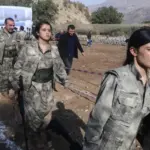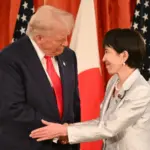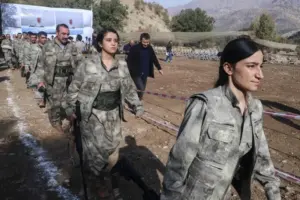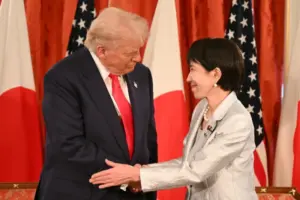Goods carrier trucks were seen stalled near the closed Torkham border crossing between Afghanistan and Pakistan in Nangarhar province on Sunday.
Pakistan and the Afghan Taliban resumed talks in Istanbul on Monday for the third round of negotiations, seeking to reduce tensions that escalated after deadly border clashes earlier this month.
Islamabad reiterated its clear stance, calling on the Taliban government to stop supporting the Tehrik-e-Taliban Pakistan (TTP), also known as Khawarij, which is responsible for several terrorist attacks inside Pakistan and cross-border strikes from Afghan territory.
Meanwhile, Kabul called for “dialogue and understanding” after Pakistan warned that war could be an option if negotiations fail.
Two weeks ago, Afghanistan launched a border operation following explosions in Kabul that the Taliban blamed on Pakistan. The clashes killed dozens on both sides, including civilians.
In response, Pakistan carried out strikes targeting militant hideouts inside Afghanistan. This led to further violence and a brief 48-hour ceasefire that collapsed soon after.
A second truce was reached after talks in Doha, mediated by Qatar and Turkey, but the details remain unclear.
The Istanbul talks, which began on Saturday, are focused on establishing a system to maintain the fragile ceasefire and prevent new fighting.
“The second phase of negotiations is ongoing. We cannot predict the outcome and must wait for the meeting to conclude,” Taliban spokesman Zabihullah Mujahid told AFP on Monday. “The only solution to resolve the current issue with Pakistan is dialogue and understanding,” he added.
Pakistani security officials said progress in the talks depends on the Taliban’s “positive attitude,” accusing the Afghan negotiators of showing “stubbornness and a lack of seriousness.”
Defence Minister Khawaja Asif warned on Saturday that failure to reach an agreement could result in “open war.” “If no deal happens, open war is an option,” he said.
Pakistan has demanded “verifiable action” against the TTP, claiming the group operates from Afghan soil. Kabul has denied sheltering militants and stressed its commitment to protecting Afghanistan’s sovereignty.
Taliban representatives have reportedly urged Pakistan to stop airspace violations and avoid supporting opposition factions.
At the ASEAN summit in Malaysia, US President Donald Trump said he could “solve the Afghanistan-Pakistan crisis very quickly.”
Separately, Interior Minister Mohsin Naqvi praised Pakistan’s security forces for preventing an infiltration attempt by Khawarij militants from the Afghan border.
Naqvi commended the forces for their swift and professional response, which resulted in the killing of 25 militants, including four suicide bombers. He also paid tribute to the five soldiers martyred during the operation. “Our brave sons sacrificed their lives to stop the evil plans of the Khawarij,” he said. “I salute the supreme sacrifices of our martyrs.”
In another development, US Secretary of State Marco Rubio said Washington sees its growing partnership with Pakistan as a strategic opportunity to strengthen mutual interests.
Speaking to reporters en route to Doha, Qatar, Rubio said the United States aims to expand cooperation with Pakistan as part of a balanced and pragmatic foreign policy. “We see an opportunity to expand our strategic relationship with Pakistan,” he said, according to a transcript on the State Department website. “Our goal is to work with as many countries as possible on shared priorities.”
Responding to questions about India’s concerns, Rubio said New Delhi understands the US position and has shown diplomatic maturity.





















